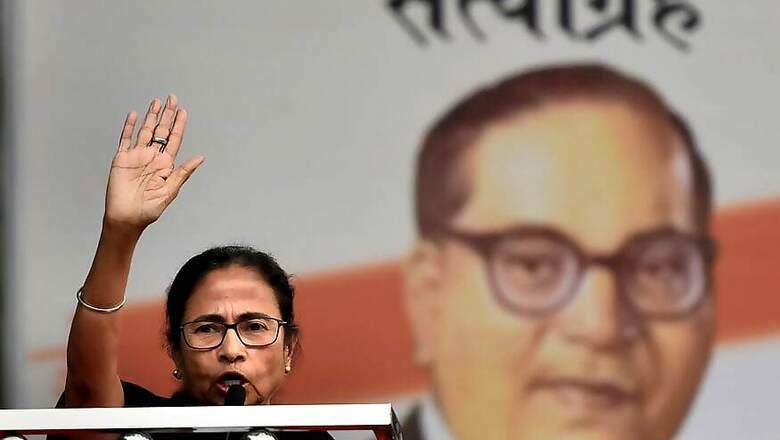
views
Kolkata: Ahead of the Assembly elections in 2017 and then again during the Lok Sabha polls in Uttar Pradesh, the RSS and the BJP dug out the legacy of Jogendranath Mandal — a Dalit leader from Bengal who had gone on to become a founding father of Pakistan and a minister in its first cabinet — and argued that Dalit-Muslim unity was impossible.
But neither Mandal nor his politics featured in the BJP’s frenetic bid to woo the electoral influential Dalit Namasudra community that has an electoral imprint in at least eight Lok Sabha seats in south Bengal. So far, this battle has been marred by the death of a legislator, the schism in a family has led a community for over a century, allegations of violence and the mention of a “deadly assassin”.
In the middle of all this, Mandal’s absence from the discourse is neither accidental nor unimportant.
Arguably the most important Dalit leader in Bengal before the partition, Mandal had rallied and eventually managed to get BR Ambedkar sent to the Constituent Assembly. But his legacy, as one BJP leader put it: “Is not an easy one to negotiate for the BJP. Yes, he might have come back disillusioned from Pakistan, but he was equally wary of the Hindu Mahasabha and in many ways encapsulates the challenge we face.”
Although the Left has often cited its three decades of Bengal as evidence of ideology trumping caste, the issues dominating the battle over the Matua vote are eerily similar to the ones that Mandal warned of through his political career in India and Pakistan: the border and its implications for the scheduled caste communities, post partition refugee rights and the idea of Dalit-Muslim political unity.
Writing towards the end of his life in his unpublished autobiography (Aprakashita Atmakahini), he predicted that the failure to rehabilitate Dalit refugees in West Bengal and rising communalism would dominate politics for years to come. “Only destiny knows when all these problems will be settled,” he wrote.
Bengal’s Dalit-Muslim Formula
“I asked, what do you know of what caste oppression is,” said Nanda Dulal Mohanto, a member of the Matua Mahasangha. The first in his community to complete a doctorate documenting the history of the community, he recalled how his initial proposal was viewed with suspicion. “During my presentation at the end of it, they wanted to stop me halfway. But I was in tears, I told them that they had to listen...they had to listen to why caste matters in Bengal.”
Mohanto’s home at Thakurnagar is just off the 108-km Jessore Road that connects Kolkata to Jessore in Bangladesh. It was this road that east Bengali refugees took to arrive at India during the 1971 war.
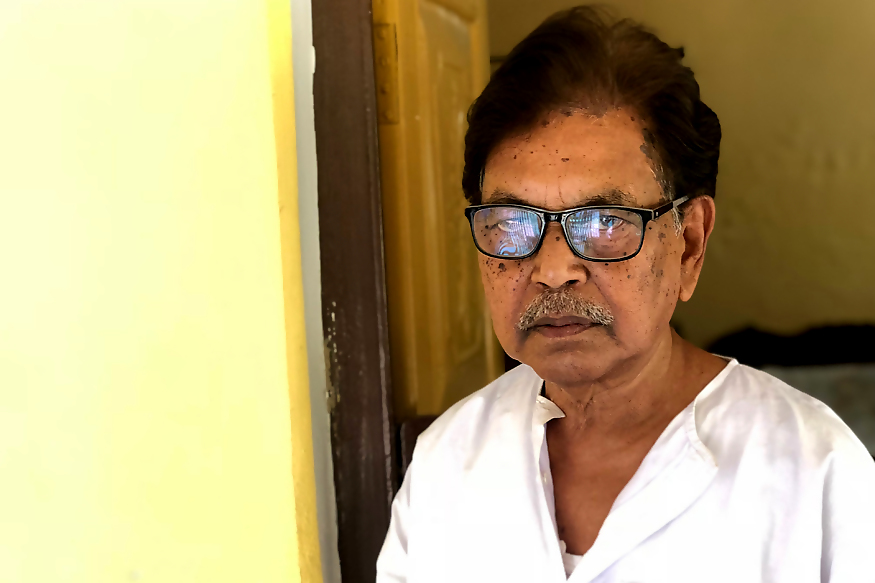
Nanda Dulal Mohanto
Poet Allen Ginsberg described it as the return of “millions of souls nineteen seventy one homeless on Jessore Road under grey sun”. Mohanto describes it differently. “It was our desh (country), our home. Now it isn’t,” he said. The partition, the border and the past, perhaps unsurprisingly, is a constant throughline as he spoke. “How can it not. It changed everything for the scheduled castes of the area,” he said.
The decades after the partition saw nation and religion dominating politics in Bengal. For those like Mohanto who fled from East Pakistan to return to India, politics was no longer a priority — the immediate need was survival.
The question of caste was pushed into the background. That is until Mamata Banerjee changed all of this. Perhaps inadvertently, she went on to perfect the formula of Dalit-Muslim political unity in the state and bulldozed opponents.
The fact that Bengal has an estimated 30 percent Muslim population is often stressed upon by political commentators. But consider this: about 23.49 percent of the state’s population and 12.88% of the country’s population is Dalit. Moreover, the Dalit population isn’t homogeneous, instead it is dominated by five major sub castes — Rajbanshi, Namasudras, Poundras and the Bauris, who account for 76 percent of the total. What this resulted in was the mobilisation of Dalits by parties along the lines of these sub-castes, instead of the larger Dalit identity. So, for instance, from 1952 till 2001, the MLAs from Jalpaiguri, Cooch Behar, North Dinajapur and South Dinajpur were all Rajbanshis by caste.
Among these, the Namasudras have historically been the most politically active. While Jogendranath looked to create an Ambedkarite movement, the Matua sect has also mobilised politically against the upper castes since the 1880s through the advocacy of a conscious materialism, markedly different from Ramakrishna’s spiritual emphasis against work (kaaj) and wealth (kanchan).
The Left’s seeming disdain for caste was a political factor linked to the land reform movement that effectively replaced the old order of zamindars with the panchayats in rural society. But this, historians have pointed out, didn’t politically empower Dalits, but passed the leadership on to educated upper castes who were better able to grasp the rules and regulations of the new system.
Historian Arvind Kumar has pointed out that with the upper castes holding little property, this eventually led to the “language of marginalisation (being) completely hijacked by the discourse of class, relegating caste into irrelevance.” When Banerjee, in 2009, received a lifetime membership card to the sect, she effectively adapted Jogendranath’s formula.
Religion, Border and NRC
But a decade later, like Jogendranath, Banerjee faces a familiar challenge: the politics of religion and borders. Modi began his campaign in the state from the community’s spiritual home at Thakurnagar. There, he met the community’s leader ‘Boroma’ Binapani Devi, the widow Harichand Thakur’s great grandson PR Thakur. After her death soon after, the family split between the BJP and the TMC, between Binapani’s grandson and BJP candidate from Bongaon Shantanu Thakur and his aunt incumbent TMC MP Mamata Bala Thakur.
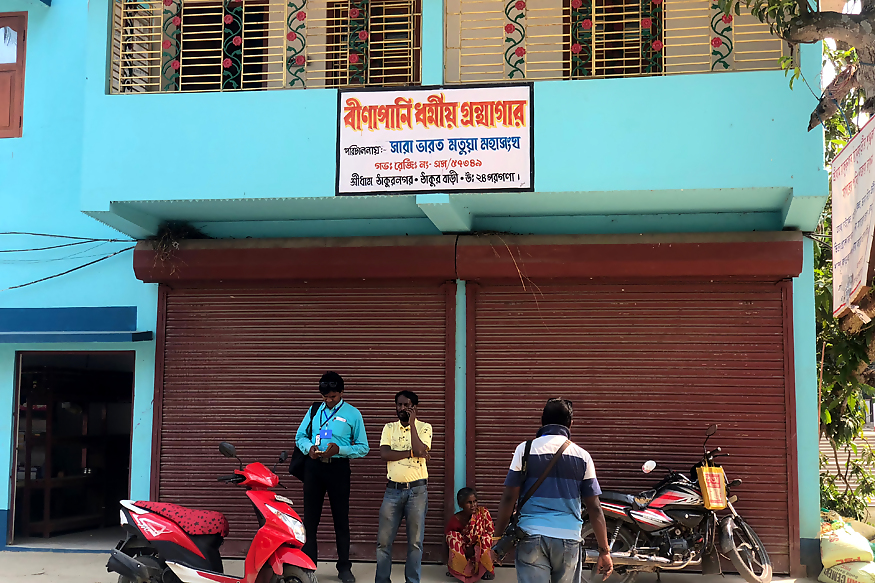
The house where Boroma stayed
It was in 1946 that the Matua movement had first split. On the one hand was Guruchand Thakur’s grandson PR Thakur, who sided with the Congress. On the other was Mandal, who sided with the Muslim league, advocating the need for unity with Muslims.
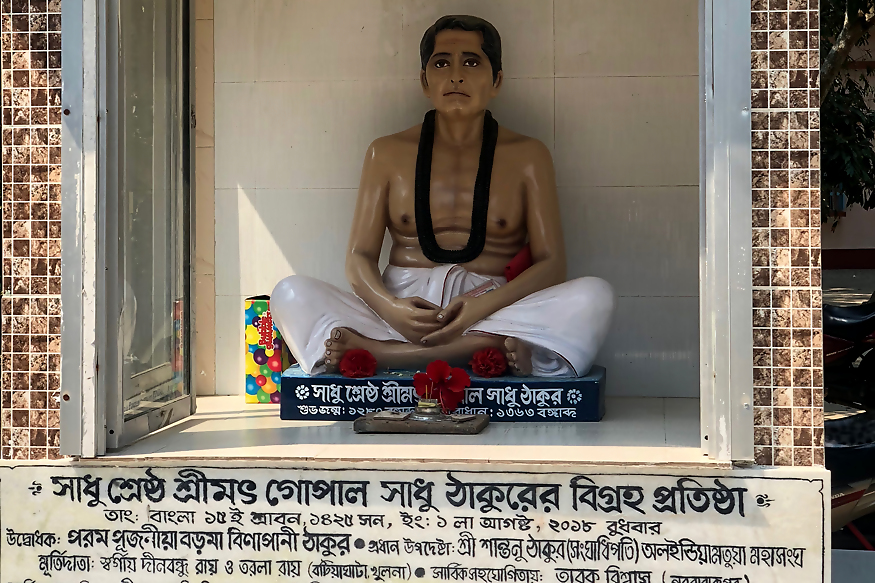
A bust of the founder of Matua sect
RSS ideologue Rakesh Sinha wrote in 2017 that Jogendranath returned from Pakistan “disillusioned” with “Muslim society” and made his “ghar wapsi” to India where he “lived the rest of his life in peace”. What the RSS doesn’t mention is the vilification he suffered at the hands of not just the Congress, but also the Hindu Mahasabha.
Describing the “vile falsehoods” and “propaganda” opposing his, eventually successful, attempts to get BR Ambedkar elected to the Constituent Assembly, he wrote, “I have had to listen to various types of heart-rending abuses...I have digested so much poison that everything from my nails to the hair on my head ought to have turned blue.”
Throughout the campaign, the BJP has made a distinction between the ‘Hindu’ refugee and the ‘Muslim’ infiltrator. “Infiltrators are gnawing away at our country like termites. Yet, Mamata Banerjee is opposing the NRC...We have made this promise in our manifesto: every infiltrator will be expelled,” BJP president Amit Shah said on April 11. But Mohanto countered, “They (BJP) are saying that the NRC will solve all our problems...perhaps some people believe this. But how can this be? Had this been solved during the partition, it would have been different. But can we have concentration camps today...can you ask a third of the state to go somewhere else,” said Mohanto.
The TMC, meanwhile, has countered with its campaign aimed at highlighting existing fears that a citizen register would target Hindu and Muslims alike. “They want to throw everyone out,” Banerjee said in an election rally on April 18. A TMC leader from Barasat told News18, “The fact is that no one is quite sure what the NRC is, what it entails. Right now, the BJP is saying something. But we have all seen what happened in Assam and people have a right to know”.
Some are less convinced. “The fact is that in the past few years, the TMC has done some work for us. But it is a party that favours and needs the Muslims. It is a Muslim-first party and the BJP isn’t. I am not sure if the NRC is what is needed, but if the infiltrators are kicked out, things will improve for us,” said 23-year-old Ramprasad Das from Dum Dum. “I am split,” admitted 61-year-old Sharmishtha Mondol. “For years, we have voted under ‘Boroma’s’ leadership. But I am not even sure if the Matua Mahsangha will last. The family has split and the community is without direction.”
(The story is part of News18’s special series on the rise of identity politics in post-Left Bengal)

















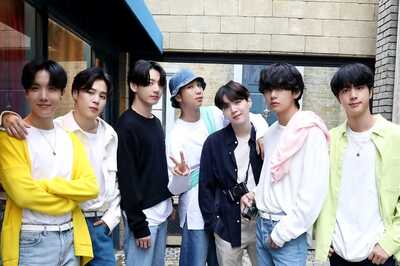
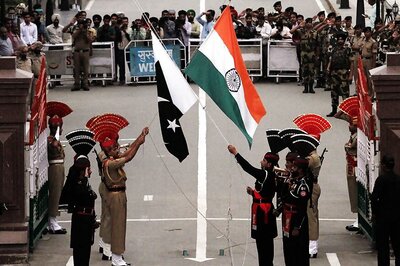

Comments
0 comment